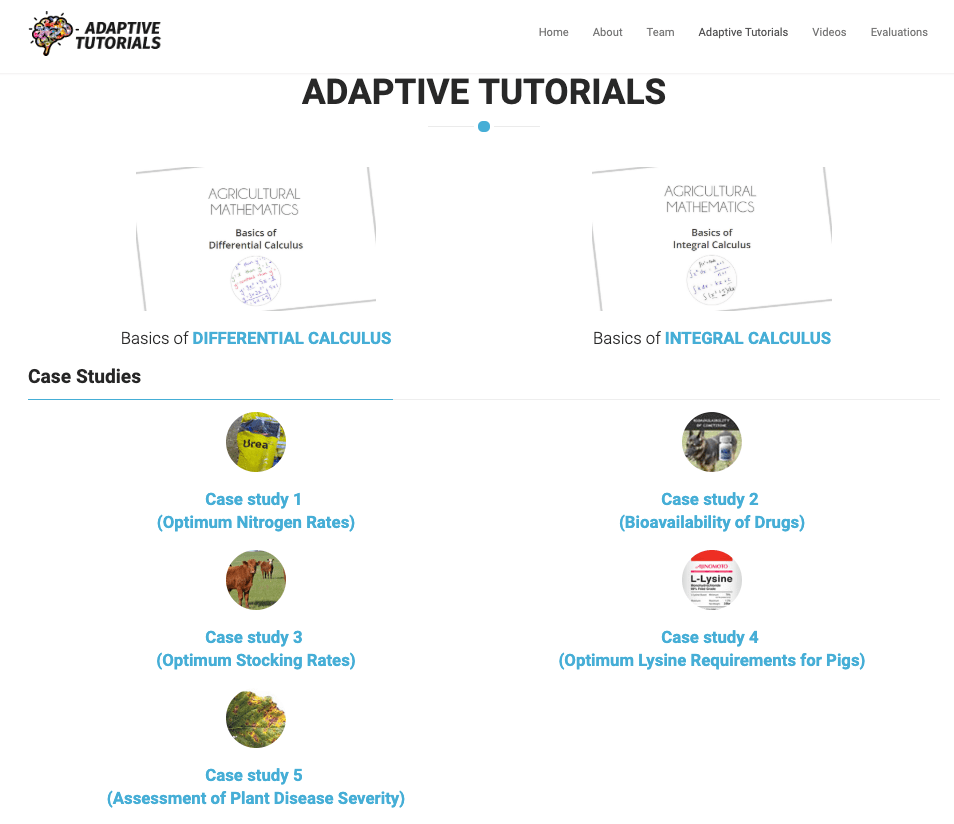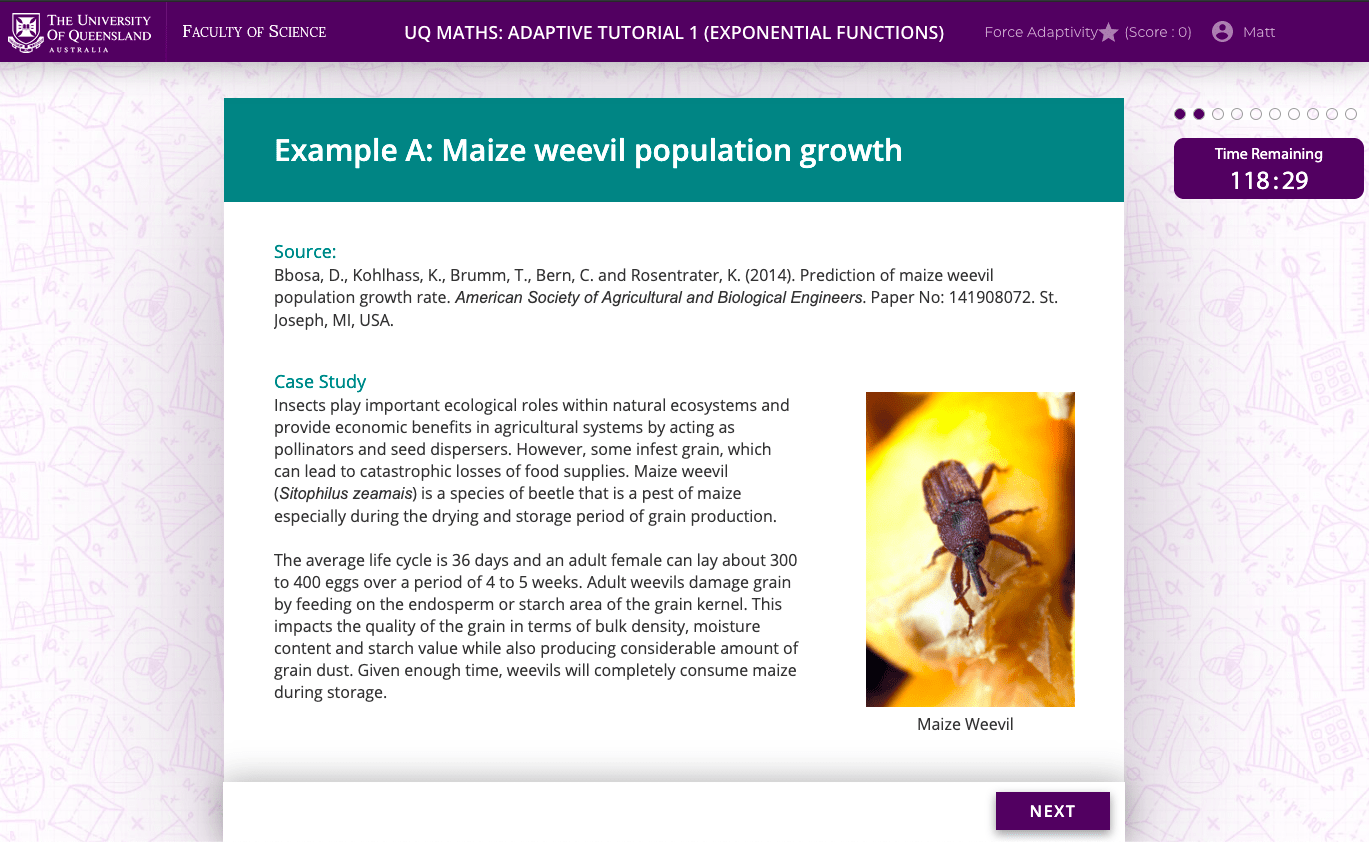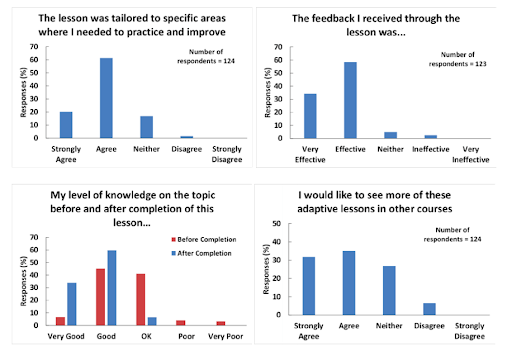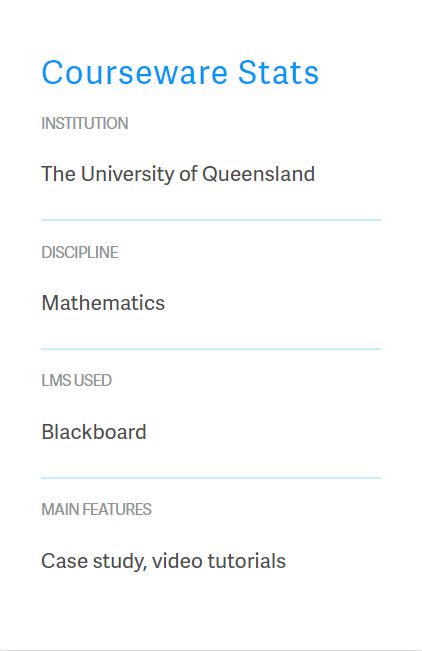DEMOAdaptive Mathematics7Adaptive Tutorial40Questions2015First Deployment21Total Lessons
A set of learning experiences to help first year agricultural students get over their ‘maths phobia’ and to develop and apply maths skills to solve genuine contextualised examples in their chosen field of study.
Please Note: This activity is a portion of a larger lesson. It is optimized for desktop use — we recommend viewing full-screen.
Introduction
Dr Madan Gupta and his team teach basic mathematics to first year agricultural science students at the University of Queensland. The course is typically taken by students who did not complete final year mathematics at high school. The overall aim of the course is to give agricultural students the basic/underlying maths skills, such as differential and integral calculus, and logarithmic and exponential functions, to be able to solve problems in the agricultural and processing industries.
Students can choose to take the course either on-campus or in distance mode (opted by one-third of the students). Over the years, a number of new teaching and learning approaches were introduced into the on-campus course that helped to reduce the failure rate and increase student engagement.
However, these approaches did little for the off-campus students and failure rate for these students was substantially high, showing students were dissatisfied with the course and not doing well.
The Challenge
Many students coming into the course, both internal and external, did not complete final year mathematics in high school. The main topic gaps identified with the course were differential and integral calculus topics, and students could not see the relevance of these topics to their future profession in agriculture.
In addition, distance students studying online found the experience especially difficult, often reporting feeling frustrated and disengaged with the course. Dr Madan and his team identified the traditional online learning teaching method used in distance mode to be ineffective for their students, and needed to find a way to better engage them.
Solution
Dr Gupta and his team collaborated with Smart Sparrow to develop multiple online learning experiences for their class (both on-campus and distance students). In the first stage of the project, Smart Sparrow helped developed 7 lessons, which were deployed in 2015. After the success of the first project, a follow-up project involved the development of 4 lessons along with a template, which the UQ team used to develop an additional 12 lessons themselves.

Through consultation with agricultural scientists and by examining research in published literature, five case studies were developed. Students were placed in the shoes of an agricultural consultant tasked to solve the problem presented using the data and maths skills they were learning. The problem sets based on the case study included randomised variables so that questions would appear to differently for different students allowing for indefinite practise.
Each learning experience consists of three basic components:
- A pretest to assess students’ confidence level with key maths concepts required in the lesson
- A set of real-life situations presented as case studies, along with published data
- A set of real-life problems to solve using the maths concepts presented, based on the case study and data

Students are guided through each problem step-by-step, solving one part of the problem at a time. They are provided with feedback based on the answers they enter and if struggling, they are presented with the worked solutions to review. Breaking the problems up in this way, and providing worked solutions and feedback, helps students to build up and practice their skills in manageable chunks.
An adaptive scoring system was incorporated into the lessons to allow instructors to see the progress of students. The scores given depend on how many attempts students have on questions, and their answers.
Results
The learning experiences were deployed via Blackboard to both internal and external students. Feedback from students was positive (stats shown below), with the majority of both internal and external students finding the learning experience more engaging and challenging. They also reported having a greater understanding of the material and the confidence of applying these concepts in their professional lives.
Overall, Dr Gupta found that these learning experiences helped improve external students’ motivation, and more importantly knowledge. It also helped internal students develop and apply and practise the skills they were learning in class.

Graphs summarising student survey results from 2 case studies (Optimum nitrogen rates and Bioavailability of drugs) deployed in MATH1040 (Basic Mathematics) at The University of Queensland.
Student Feedback
“You should have designed these for every topic in this course. I learnt A LOT from that short segment more than I could have from a lecture or anything else that is so antiquated for this day and age of external online teaching.” – student
“[I] honestly found this the best learning tool of all. Being an external student that also has to juggle full time work I found this the most engaging and also found I retained the information a lot faster.” – student
“The mathematics was linked to a real life situation, which enabled me to understand why you would use the mathematical equations” – student


